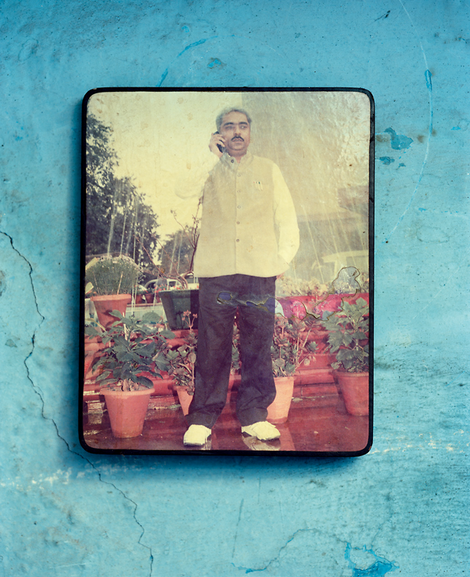Your podcast discovery platform
Curious minds select the most fascinating podcasts from around the world. Discover hand-piqd audio recommendations on your favorite topics.

piqer for: piqd Boom and bust Climate and Environment Global finds Globalization and politics Health and Sanity Technology and society Doing Good Deep Dives
Malia Politzer is the executive editor of piqd.com, and an award-winning long-form journalist based out of Spain. She specializes in reporting on migration, international development, human rights issues and investigative reporting.
Originally from California, she's lived in China, Spain, Mexico and India, and reported from various countries in Africa, Europe and the Middle East. Her primary beats relate to immigration, economics and international development. She has published articles in Huffington Post Highline, The Economist, The Wall Street Journal, Vogue India, Mint, Far Eastern Economic Review, Foreign Policy, Reason Magazine, and the Phoenix New Times. She is also a regular contributor to Devex.
Her Huffington Post Highline series, "The 21st Century Gold Rush" won awards from the National Association of Magazine Editors, Overseas Press Club, and American Society of Newspaper Editors. She's also won multiple awards for feature writing in India and the United States.
Her reporting has been supported by the Pulitzer Center on Crisis Reporting, The Institute For Current World Affairs, and the Global Migration Grant.
Degrees include a BA from Hampshire College and MS from Columbia University Graduate School of Journalism, where was a Stabile Fellow at the Center for Investigative Journalism.
The Newlyweds: The Risks Some Indian Couples Take When They Marry For Love
Journalist Mansi Choksi's Harpers article reads like a Greek tragedy: Two young lovers, Nitu and Darwinder, neighbors from a remote village in Haryana, fall in love and want to get married. However, due to issues of caste and their village's tradition, a "love marriage" is forbidden to them.
So the young couple runs away from their village, and stays in a shelter in New Delhi run by a group called the "Love Commandos", which helps to register the marriages of young couples forced to flee the disapproval of their families, and elope – at a substantial price. While there, they are required to clean, cook, and walk the "bomb sniffing" dog to earn their keep (though they'd already paid a substantial sum for the services.) Months later, sans marriage license, they get frustrated and find another way – this time with their parents' blessing – to get married.
Sadly, Nitu and Darwinder's story does not have a happy ending: The social disapproval of their elopement is so harsh it becomes violent; Darwinder's mother is beaten to death by a mob of villagers as penalty for her son's choice. Darwinder's family blames her death on Nitu, who they believe is the "root of the problem". Darwinder is so wrecked with guilt, he becomes cold to his new wife.
Choke's article does a beautiful job of highlighting all the challenges facing some Indian couples in certain parts of the country who want to marry for love – from the social norms that are so rigid that violating them can mean death, to the entrepreneurs eager to financially exploit a couples' desperation. "The Newlyweds" is a beautiful, if tragic read – and one well worth the time.
